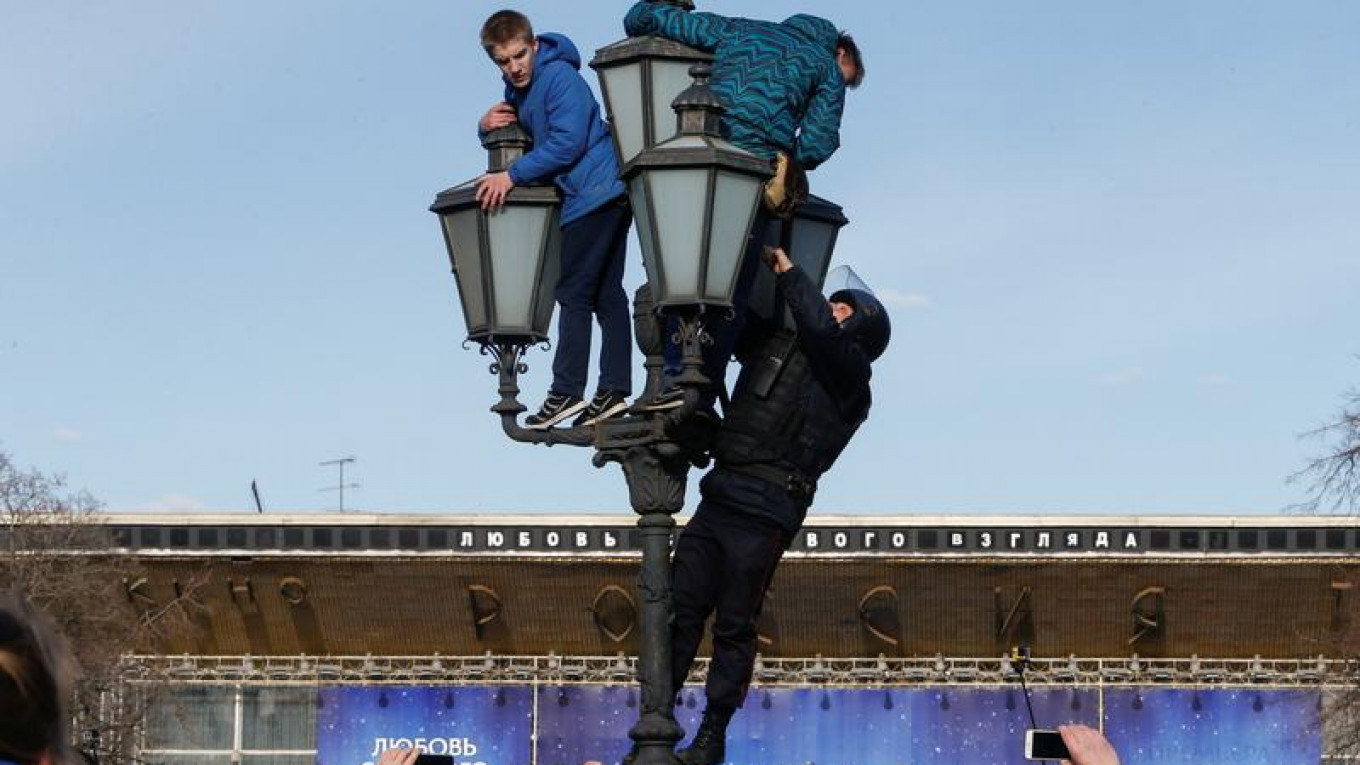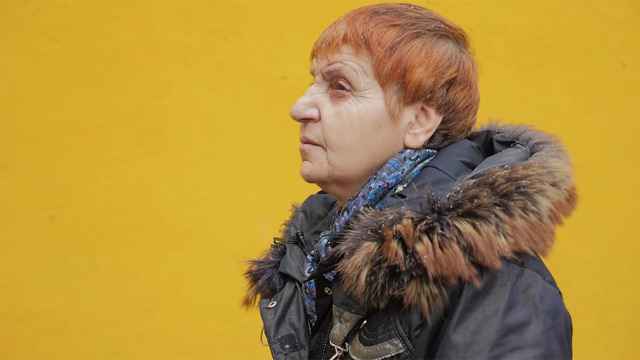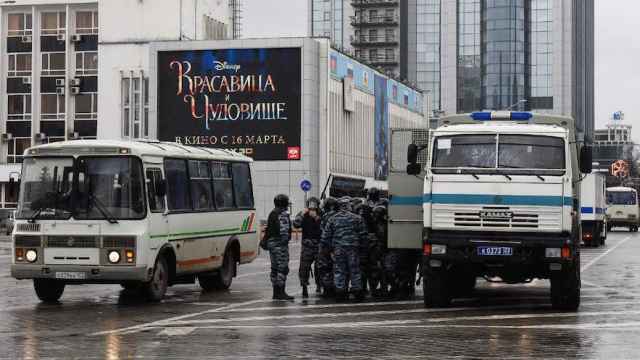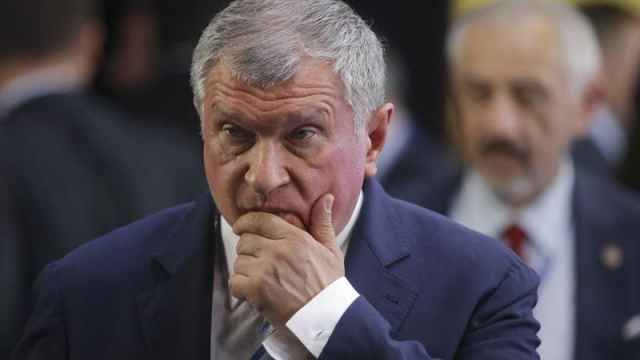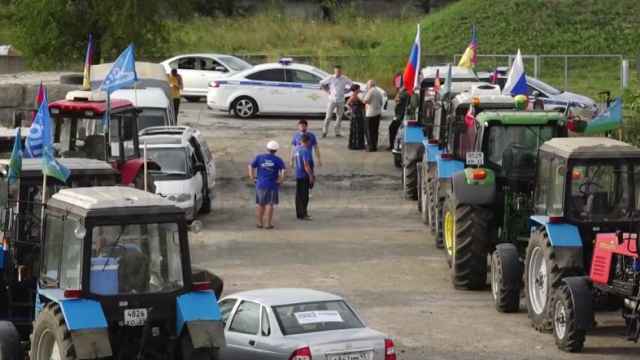Russia's most active protesters may be its least active voters, according to a new study.
Of the 10 Russian regions where the highest percentage of the overall population took part in the March 26 anti-corruption protests, nine had a voter turnout below the national average during the Sept. 2016 parliamentary election. In other words, the lower the turnout was for last year's vote, the more people came out to protest on Sunday.
These conclusions come from a new report by the Sigma Expert agency. To measure the number of protest participants in each city, the company's researchers took the Interior Ministry's protest turnout data, combined it with the turnout estimates from the protest organizers themselves and then worked out the mathematical average between the data sets. They then compared the figures with electoral turnout data.
The researchers found the cities with the largest protest turnout (as a percentage of the local population) to be Makhachkala, Smolensk, Komsomolsk-on-the-Amur, Chita, Vladivostok, Perm, Yekaterinburg, St. Petersburg, Nizhny Novgorod, and Novosibirsk.
All had below-average electoral turnout, with the exception of Makhachkala. The North Caucasus city – capital of Russia's Dagestan republic – had an 88-percent turnout in September.
The appearance of anti-corruption protests in Makhachkala came as a surprise to many observers. The republic is hardly known as a bastion of political freedom. Nonetheless, according to the study's estimates, 350 people took part in the local protests.
However, the Makhachkala anomaly may be explainable, according to elections expert Andrei Buzin. Dagestan's local authorities are known to have artificially increased electoral turnout in several instances, he told the Vedomosti newspaper.
Sigma Expert also measured how the protesters were mobilized. The company found that the March 26 protests differed significantly from the Bolotnaya anti-government protests in winter 2011-2012.
During the Bolotnaya protests, Facebook – a platform preferred by educated, urban residents – was the main mobilizing tool. In 2017, Vkontakte, Russia's most popular social network, became the center of mobilization.
Of the 20 cities with the largest protest turnout on March 26, only half had Facebook groups dedicated to protest mobilization. All 20 had Vkontakte groups. Moreover, no top bloggers – excluding opposition leader Alexei Navalny, who called for the protests – promoted the rallies.
A Message from The Moscow Times:
Dear readers,
We are facing unprecedented challenges. Russia's Prosecutor General's Office has designated The Moscow Times as an "undesirable" organization, criminalizing our work and putting our staff at risk of prosecution. This follows our earlier unjust labeling as a "foreign agent."
These actions are direct attempts to silence independent journalism in Russia. The authorities claim our work "discredits the decisions of the Russian leadership." We see things differently: we strive to provide accurate, unbiased reporting on Russia.
We, the journalists of The Moscow Times, refuse to be silenced. But to continue our work, we need your help.
Your support, no matter how small, makes a world of difference. If you can, please support us monthly starting from just $2. It's quick to set up, and every contribution makes a significant impact.
By supporting The Moscow Times, you're defending open, independent journalism in the face of repression. Thank you for standing with us.
Remind me later.


